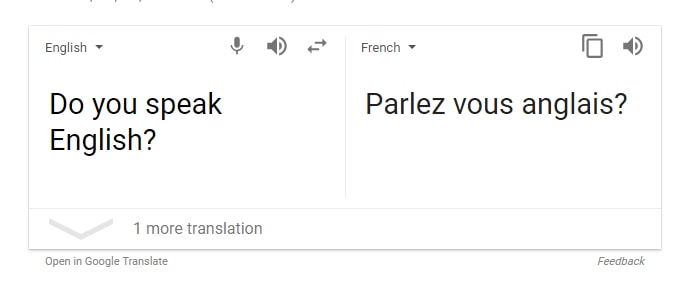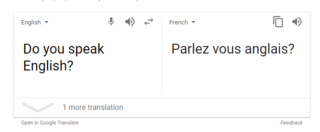
First-time English-speaking visitors to Quebec usually have questions about how to travel successfully in a province where French is the primary language.
Is English Widely Spoken in Quebec?
It depends where you travel in Quebec.
Quebec is the only Canadian province where French is the official language, and the vast majority of residents speak French. However, more than 40% of the population can speak French and English.
If you visit establishments in Montreal and Quebec City that cater to tourists, it’s practically a given that employees will speak both French and English. Particularly those working in restaurants, hotels or as tour guides.
In doubt? Just ask.
Parlez Vous Anglais?
“Parlez vous anglais” is one of the handiest phrases to learn for English speakers visiting Quebec.
Learn it and be ready to say it a lot, because this is how you ask Francophones if they speak English. Some do and some don’t.
The farther you travel from major metropolitan areas, the more likely you will encounter residents who speak French only.
But that’s part of the allure of traveling within Quebec. Even though it’s part of Canada and North America, this language difference gives Quebec a totally different feel than anywhere else.
Don’t get too hung up on the language differences. Even if you don’t speak French, you can usually communicate with gestures or by using Google Translate on your phone.
For example, my wife and I visited the wonderful bakery Boulangerie Artisanale, located in Grandes-Bergeronnes – about 150 miles northeast of Quebec City. The owners didn’t speak English, and the chalkboard menu was in French.
So, I simply pointed at what I wanted in the bakery case and signified with my fingers how many I wanted. The cash register rang up the amount. I handed my money to the woman behind the counter. She smiled and said, “Bonne journee” (have a good day).
It was dumb luck that one of the items I pointed to was “Kouing amann.” I had no idea what it was at the time. But as we drove off, my wife and I devoured it and proclaimed it the best pastry we had ever eaten.
Embrace the Language Difference
That same morning in Grandes-Bergeronnes, my wife and I were in a nearby park that overlooked the St. Lawrence River. We stopped there for an hour or so, scanning the water, looking for whales and seals.
A gentleman pulled up in a truck and he and his dog got out. He walked over to me and said something in French, of which I could only understand the word “baleine,” which is French for whale. I thought he was asking if I had seen any. I quickly asked, “Parlez vous anglais?” He did speak English, but asked me to respond in French.
So, there I was on the beach using hand gestures and broken French to explain where I had seen “deux baleines” (two whales) and that they had since gone underwater.
The man seemed genuinely pleased at my efforts and then asked where I was from.
I said, “Nous sommes de Wisconsin” (We are from Wisconsin).
He held out his hand, shook my hand and laughed heartily. “You speak very good French!”
Then he and his dog got into the truck. He waved, smiling as he drove away.
My best advice is to embrace the language difference. And have fun with it.
Pick up some French Language Flash Cards or purchase an audio course before you travel. Practice at home and then practice while you’re in Quebec. I mean how often do you get to speak French?
Your French doesn’t have to be perfect. Any effort you make to speak the mother tongue will be appreciated.
You’ll be surprised how far a few basic French phrases can take you.
